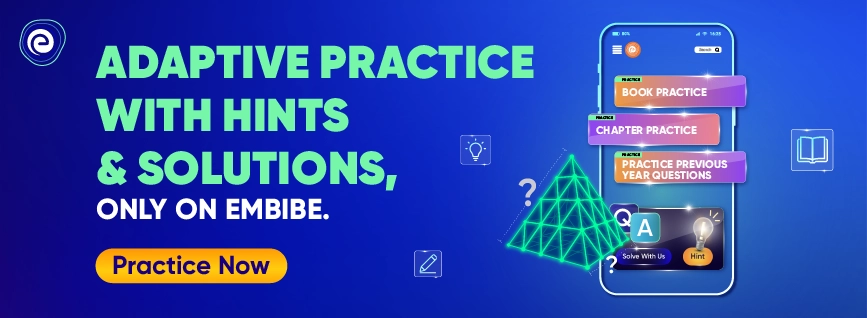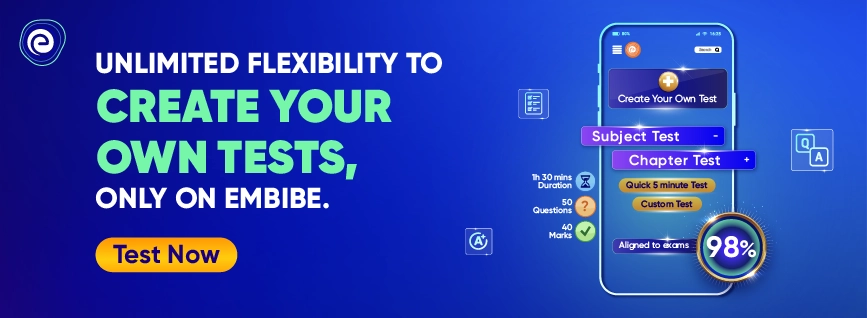- Written by nikhil
- Last Modified on 8-03-2023
About Meghalaya Board Class 7 Exam 2023
Meghalaya Board Class 7 exam is conducted at the school level as per the prescribed guidelines of the Meghalaya Board of School Education (MBOSE). The board conducts exams for primary and secondary-level exams. The MBOSE exam authority focuses on helping to develop the overall intelligence of students.
The board students will need to focus on their overall performance to determine that they can pass the exams. The performance and growth of students are assessed through Continuous and Comprehensive Assessments (CCE) by Formative Assessments (FA) and Summative Assessments (SA). The focus should be laid on both FA and SA sessions to ensure maximum marks in the exams. Students can learn more about it below.
MBOSE Class 7 Exam Summary 2023
The MBOSE Class 7 exam is conducted for Mathematics, Science, English, Hindi, Social Studies, Science and Technology. The performance and growth of students are assessed through Continuous and Comprehensive Assessments (CCE), by Formative Assessments (FA), and Summative Assessments (SA).
The FA and SA examinations are conducted in four parts around the year in August, December, February and May respectively. Students appearing for the MBOSE Class 7 exams must ensure that they follow the syllabus carefully and prepare for these exams to score higher marks in the exams. They must focus or pay attention to the core subjects and especially the language subjects to ensure that they can score better and pass the exams.
In the table below, we have provided detailed information about Meghalaya Board Class 7:
| Particulars |
Details |
| Board Name |
Meghalaya Board School of Education |
| Abbreviation |
MBOSE |
| Headquarters |
Tura, Meghalaya |
| Administered By |
Meghalaya Government |
| Exam Paper |
Formative (FA) and Summative Assessment (SA) Exam |
| Examination Time |
Meghalaya Board Class 7 examination is conducted every year in August, December, February, May. |
MBOSE Class 7 Official Website Link
http://www.mbose.in/
MBOSE Class 7 Exam Syllabus 2023
As a student of Meghalaya board, you must be familiar with what the syllabus is. Being familiar with the syllabus will make it easier for you to score higher marks in the exams. Furthermore, you will be able to understand how much time you should be allocating to your studies. Knowing the syllabus will help you dedicate sufficient time to each subject thereby ensuring you get to score better marks.
Being familiar with the syllabus from before will allow you to select the right textbooks and study materials for MBOSE Class 7 that you must refer to for exam preparation. The Meghalaya board recommends the textbooks that the students must use for their exam preparation. Furthermore, they should also refer to the NCERT books for reference and to get better clarity on the topics. Hence, the students must follow the Meghalaya board Class 7 syllabus and start their exam preparation accordingly.
MBOSE Class 7 Maths Syllabus
Maths requires your complete attention and focus. Students cannot score higher marks in the exams of Maths if their concepts are not clear. Students should be referring to the right materials to enhance their exam preparation. In the table below, we have provided the Class 7 Maths syllabus:
| Chapter No |
Chapter Name |
| 1 |
Integers |
| 2 |
Fractions and Decimals |
| 3 |
Comparing Quantities |
| 4 |
Rational Numbers |
| 5 |
Exponents and Powers |
| 6 |
Data Handling |
| 7 |
Simple Equations |
| 8 |
Algebraic Expressions |
| 9 |
Lines and Angles |
| 10 |
The Triangle and Its Properties |
| 11 |
Congruence of Triangles |
| 12 |
Practical Geometry |
| 13 |
Perimeter and Area |
| 14 |
Symmetry |
| 15 |
Visualising Solid Shapes |
MBOSE Class 7 Science Syllabus
When students start their Science exam preparation using the right resources, learning becomes a lot simpler and easier. As a student of MBOSE Class 7, it is important that the students lay focus on the smallest details of the MBOSE Class 7 topics so that they are able to understand the concepts better.
Students can refer to the table below to get the MBOSE Class 7 Science syllabus:
| Chapter No. |
Chapter Name |
| 1 |
Nutrition in Plants |
| 2 |
Nutrition in Animals |
| 3 |
Fibre to Fabric |
| 4 |
Heat |
| 5 |
Acids, Bases and Salts |
| 6 |
Physical and Chemical Changes |
| 7 |
Weather, Climate and Adaptations of Animals to Climate |
| 8 |
Winds, Storms and Cyclones |
| 9 |
Soil |
| 10 |
Respiration in Organisms |
| 11 |
Transportation in Plants and Animals |
| 12 |
Reproduction in Plants |
| 13 |
Motion and Time |
| 14 |
Electric Current and Circuits |
| 15 |
Light |
| 16 |
Water |
| 17 |
Forests: Our Lifeline |
| 18 |
Wastewater Story |
MBOSE Class 7 Study Plan to Maximise Score
Students from Meghalaya Board Class 7 should focus on their exam preparation. Having a proper study plan ensures that they are able to prepare for the exams in a better manner. By having a systematic approach to studying, not only will they be able to cover the syllabus in a short time, but also finish off their revision. For your convenience, you can find a detailed study plan and preparation tips for MBOSE Class 7 below.
MBOSE Class 7 Preparation Tips
Students who are appearing for the MBOSE Class 7 exams need to ensure that they follow the learning materials carefully. It is advisable that the students follow the syllabus carefully and prepare a study schedule that would suit their needs the most. For the convenience of students, we have listed some of the important preparation tips for the students of MBOSE Class 7:
- Prepare a study timetable: The first thing to do while starting preparation is to have a proper timetable. The timetable plays an important role in scheduling the timeline thereby making it easier for the students to complete their syllabus on time. Furthermore, it also ensures that none of the students are missing out on any important chapters during the exam preparation stage.
- Make short notes subject-wise: Read and Write is an important concepts that every student must follow. While preparing for the MBOSE Class 7 exams, students must make notes from every chapter and topic. These can prove to be efficient study materials. Making notes will also help the students memorise the concepts for a longer period of time. Furthermore, these can also come in handy during revision.
- Learn with diagrams: Long chapters can become boring and repetitive for students. So, instead of reading the textbook, draw diagrams to help you understand a specific topic. You can learn a topic more easily this way. You do not need to remember the entire topic; simply memorise the diagram and then expand on it in your language during the exam.
- Clear your doubts: If you are having any doubts regarding any question or you are unable to understand any topic, you should consult a teacher as soon as possible and clear your doubt. Before exams, avoid topics that are new, or you have doubts about.
- Write what you study: After finishing each chapter/subject/topic, jot down all of the important points. Maintain a steady pace when taking notes, but don’t let your handwriting suffer as a result. Taking notes while learning will allow you to analyse how much time it takes to understand a topic. It will eventually come in handy during the exam, where you will have to sit and write for hours on end.
- Exercise/outdoor activities: Outdoor physical activity is also necessary for effective retention. Walking, running, jumping, skipping, and biking are all physical activities that stimulate the brain to become more active. According to research, a student’s brain is more active when he walks for 20 minutes than sitting for the same amount of time. To maintain physiological health, maintain an equal balance of studies and exercise or outdoor activities.
MBOSE Class 7 Detailed Study Plan
Following a proper detailed study plan is extremely important for students who wish to score higher marks in the exams. You can’t just excel in your exams by wishing, you will need to put all your hard work and effort into it. You can find the detailed study plan for each subject from the sections below:
English: English is one of the major subjects that the students must start preparing for in their Class 7 exams. This is the basic stage where you get to learn more about Grammar and polish your speaking and writing skills. Students must practice the process of comprehension writing from time to time to improve their Grammar skills.
Maths: Maths requires you to have a proper understanding of all the concepts. Hence, students must go through the formulas and understand the process of solving the sums. It is advisable that the students solve the problems as they learn. They must also keep the study material handy to prevent the risk of any issues that would have a negative impact.
Social Science: Students should understand that mugging the concepts of Social Science will lead them nowhere. Students should have a clear understanding of all the concepts of the subject. The best way to do so is by dividing equal time among all the subjects and preparing them one by one. It is important that students keep revising whatever they have prepared.
Science: If you want to pursue a career in Science and take your learning ahead, you need to prepare for exams in the right manner. It is crucial that you study the concepts carefully so that you can score higher marks in the exams.
FAQs on Meghalya Board Class 7 Exam
We have provided a few frequently asked questions on Meghalaya Board Class 7 exams below:
Q: Is there any board exam for Meghalaya Board Class 7?
Ans: No, students are evaluated based on their performance in school-level exams and CCE (Continuous Comprehensive Evaluation).
Q: Are there mock tests and practice questions available for the Meghalaya board Class 7 exam?
Ans: Yes, you can take practice questions and mock tests on Embibe. It also provides study material provided by subject matter experts who have a sound knowledge of the subject. You can also go through the official site and download the previous years’ question papers.
Q: How can students score good marks in the Meghalaya board Class 7 exams?
Ans: To score well in the Meghalaya board Class 7 exams, students need to study properly and revise the concepts daily. They should also attempt practice tests and mock tests to ensure that they do not have any doubts.
Q: Where can I download the syllabus for Meghalaya board Class 7?
Ans: You can refer to the complete syllabus for Meghalaya board Class 7 on this page.
Q: When did the Meghalaya Board School of Education get established?
Ans: The Meghalaya Board of School Education (MBOSE) first started in 1973, headquartered in Tura, to conduct examinations, frame the syllabi and conduct evaluation & certification.
MBOSE Class 7 List of Educational Institutions
The Meghalaya Board of School Education (MBOSE) is the official body in charge of regulating school education in the state and advising the state government on secondary and senior secondary education policies.
The School Education in Meghalaya is divided into four levels: lower primary (Classes I – V), upper primary (Classes VI-VIII), secondary (Classes IX- X), and higher secondary (Class XI-XII). The school list in Meghalaya is given in the below table.
| S.No |
List of Schools |
Location |
| 1 |
All Saints Diocesan Higher Secondary School |
Shillong, Meghalaya 793001, India |
| 2 |
Anderson Higher Secondary School |
Upper New Nongstoin, West Khasi Hills – 793119, Meghalaya, India |
| 3 |
Brookside Adventist Secondary School |
Laitumkhrah, Shillong, Meghalaya 793002, India |
| 4 |
Douglas Memorial Secondary School |
Lower Bandstand, P.O. Madanriting
Shillong – 793021, Meghalaya, India |
| 5 |
Jaintia Secondary School |
Jaintia Hills – 793150, Meghalaya, India |
| 6 |
KJP Synod Sepngi Secondary School |
West Khasi Hills – 793119, Meghalaya, India |
| 7 |
Quenie Secondary School |
Shillong – 793004, Meghalaya, India |
| 8 |
Seven Set Higher Secondary School |
Shillong – 793001, Meghalaya, India |
| 9 |
St. Mary’s Higher Secondary School |
New Tura, West Garo Hills – 794101, Meghalaya, India |
| 10 |
Tome Memorial Secondary School |
Thadlaskein Block, Jaintia Hills – 793150, Meghalaya, India |
List of Future Exams after MBOSE Class 7
After completing MBOSE Class 7, many students think about giving some competitive exams. Students can surely do that with the right knowledge about the exams that they can appear at. Below we have provided a list of all the competitive exams for Meghalaya Board Class 7 students. Students can refer to the list below for further details:
- Olympiads: The Science Olympiad Foundation (SOF) organises many Olympiads, including NCO, IMO, NSO, and ISO. They are held once a year and are extremely competitive.
- NSTSE: The Unified Council conducts the National Level Science Talent Search Exam from Classes 1 to 12. NSTSE is considered one of the most popular scholarship exams held across India.
- NIMO: It stands for the National Interactive Maths Olympiad. The EduHeal Foundation conducts NIMO, which aims to make Maths more fun. It intends to do this by introducing interactive activities such as Olympiads, workshops and seminars.
- NBTO: The National Biotechnology Olympiad raises awareness about biotechnology while also incorporating an element of competition. It also inspires the younger generation to improve their knowledge about concerns related to Biotechnology and test their aptitude for prospective careers in the field.
- GeoGenius: GeoGenius, a non-profit organisation founded by leading academics, aims to increase children’s understanding of geography. It also teaches them about the planet and develops in them a deep love and respect for the environment, which aids in their development.














































